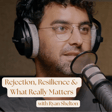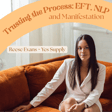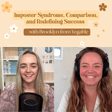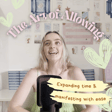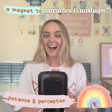
Unlocking the Secrets of Your Brain & Body for Change, Confidence & Creativity Ft. Maddie Storey
OH MY GOSH, I KNOW YOU’RE GOING TO LOVE THIS EPISODE! I’m joined with Maddie Storey who is so insightful and generous with such inspiring and mind blowing advice. In this episode we discuss:
- Understanding our brain and stress response.
- Why so many of us struggle to change, and how to actually change.
- Tools for emotional processing and regulations.
- Fear vs Intuition
- How to strengthen and practice intuition
- Unlocking Performance - tapping into deep creativity, focus and determination.
This episode is an educational piece, but should not be substituted for professional help.
If you want to check out my last episode with Maddie where we cover the below, listen here!
- People Pleasing
- Sacrificing our Authenticity for Connection
- The human desire to be liked and accepted
- The neuro neuroscience and psychology behind confrontation and uncomfortable situations
- Life purpose
- Subconscious mind when it comes to manifesting.
ABOUT MADDIE:
Maddie holds tertiary qualifications in Business and Mental Health, and she is currently pursuing a masters degree in Behavioural Neuroscience at University of New England. Maddie has extensive facilitation experience and has facilitated globally, her experience spans from working with high school students to top corporate leaders.
You can find her incredible toolkits which are based on the content we chatted about here.
A big thank you to Phoebe Evers for sponsoring this episode, her book The Little Creatures can be purchased here. Use the code SMILE10 for 10% off.
Pass Around the Smile's Links below
View my website here! (My very own oracle cards, journals, meditations, courses + more magical stuff!)
Join my Facebook community group here!
Find me on Instagram here! @passaroundthesmile @cleomassey
The Pass Around the Smile podcast is recorded on Bundjalung Country, in South East Queensland, Australia. We acknowledge the Yugambeh people of the Bundjalung Nation, the traditional owners of this land. We pay our respects to Elders past, present and emerging.





